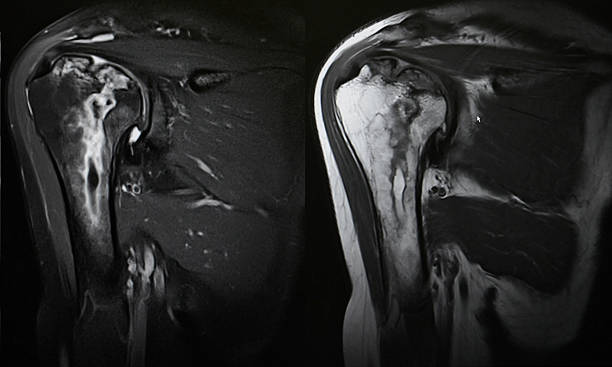Joint Health
Discover Effective Frozen Shoulder Prevention Techniques
Few orthopedic diseases are more immobilizing and unpleasant than frozen shoulder. Preventing the onset of this illness, which causes stiffness, pain, and restricted movement in the shoulder joint, is critical to preserving good mobility and quality of life. In this article, we’ll look at practical tactics and preventive steps for preventing a frozen shoulder. Join us as we look at the important steps people can take to protect themselves from this terrible ailment, from targeted workouts and ergonomic adaptations to lifestyle changes and early intervention strategies. Whether you’re a fitness fanatic, an office worker, or simply someone looking to maintain shoulder health, taking these precautions can serve as a proactive defense against the limitations of a frozen shoulder.

Understanding Frozen Shoulder
Defining Frozen Shoulder
Frozen shoulder, also known as adhesive capsulitis, is a disorder that causes discomfort and stiffness in the shoulder joint. The illness usually progresses slowly over time and can be fairly debilitating, making it difficult to do daily tasks like reaching or lifting objects.
Symptoms and Stages
The symptoms of a frozen shoulder usually advance in three stages: freezing, frozen, and thawing. During the freezing stage, the shoulder becomes more painful and stiff, making movement difficult. Pain may begin to lessen during the frozen period, but stiffness persists. Finally, during the thawing process, the shoulder gradually regains its range of motion.
Causes and Risk Factors
The specific etiology of frozen shoulder is unknown, but it is thought to be due to inflammation and scarring of the shoulder joint capsule. Certain risk factors may increase the possibility of getting a frozen shoulder, including aging (the condition is more frequent in those over the age of 40), diabetes, thyroid problems, immobility (such as wearing a sling or cast for an extended period of time), stroke, and Parkinson’s disease.
It is important to emphasize that not everyone who experiences these risk factors develops a frozen shoulder, and other factors may also play a role. If you are having shoulder discomfort or stiffness, you should speak with a healthcare practitioner to diagnose the root reason and devise an effective treatment strategy.

Prevention Strategies
A frozen shoulder is a painful ailment that can severely limit your range of motion and daily activities. Fortunately, there are some measures that might help you avoid a adhesive capsulitis.
Maintaining Mobility
One of the most important strategies to avoid a adhesive capsulitis is to keep the shoulder joint moving. This can be accomplished with frequent stretching and range of motion exercises. Simple exercises, such as arm circles and door frame stretches, can be done at home to keep the shoulders mobile.
Regular Exercise
Regular exercise is also essential for avoiding a frozen shoulder. Exercise promotes circulation and maintains healthy muscles and joints. Swimming, walking, and cycling are all low-impact exercises that can help avoid shoulder problems and improve overall health.
Managing Medical Conditions
Diabetes, hyperthyroidism, and hypothyroidism are all risk factors for developing a frozen shoulder. To avoid problems, these illnesses must be managed appropriately with medication and lifestyle changes.
In conclusion, preserving mobility, engaging in regular exercise, and controlling medical issues are all critical measures for preventing a frozen shoulder. Individuals who incorporate these methods into their daily lives can lower their likelihood of having this unpleasant ailment.

Diagnosis and Professional Assessment
A comprehensive diagnosis and professional examination are essential for preventing a frozen shoulder. This can assist in discovering any underlying issues that may be causing the problem and allow for appropriate treatment.
When to See a Doctor
If you have any indications or symptoms of a frozen shoulder, you should seek medical treatment. These symptoms may include shoulder pain, stiffness, and reduced range of motion. A doctor can assist diagnose the condition by performing a physical exam and reviewing your medical history.
Imaging Tests and Diagnosis
A frozen shoulder can be diagnosed with imaging tests such as X-rays, MRIs, and ultrasounds. These can help rule out other illnesses that could be causing the symptoms, resulting in a more accurate diagnosis. A doctor may also do further testing, such as blood tests, to look for underlying diseases that may be contributing to the problem.
It is crucial to remember that, while imaging tests can assist diagnose a frozen shoulder, they are not always necessary. A doctor may often make a diagnosis based solely on signs and symptoms. However, if imaging tests are required, they can provide useful information to guide treatment.

Treatment Options
There are various ways to treat a frozen shoulder. The treatment plan will be based on the severity of the problem and the etiology of the frozen shoulder. Here are some of the most popular treatment options:
Medication and Pain Management
Medication can be used to alleviate the pain associated with a frozen shoulder. Over-the-counter pain medications, such as ibuprofen or acetaminophen, can help alleviate discomfort and inflammation. However, if the discomfort is severe, prescription pain relievers may be required.
Steroid injections are another option for pain relief. Corticosteroids injected into the shoulder joint can help reduce pain and increase shoulder mobility, particularly if administered immediately after the frozen shoulder develops.
Home Remedies and Self-Care
A frozen shoulder is a painful ailment that reduces the range of motion in the shoulder joint. While medical treatments are available, there are various home remedies and self-care techniques that can help avoid the development of a frozen shoulder.
Heat and Cold Therapy
Heat and cold therapy can assist with alleviating the symptoms of a frozen shoulder. Applying heat to the affected area helps improve blood flow and relax the muscles, whereas applying cold can lessen inflammation and pain.
Heat therapy can be applied with a heating pad or by taking a warm shower. To apply cold therapy, use an ice pack or a bag of frozen vegetables covered in a towel. It is advisable to use heat therapy before stretching and cold therapy afterward.
Stretching and Strengthening
Stretching and strengthening activities might help you avoid a frozen shoulder. Stretching activities can enhance flexibility and range of motion, whilst strengthening exercises can improve muscle strength and stability.
Stretching exercises include arm circles, doorway stretches, and wall crawls. Resistance band exercises, dumbbell exercises, and bodyweight workouts like push-ups and planks can all be used to build strength. It is critical to complete these exercises carefully and without pain.
Lifestyle Adjustments
Lifestyle changes might also help prevent frozen shoulders. Maintaining excellent posture, avoiding repetitive overhead activities, and taking regular breaks while working at a desk can all help prevent shoulder injuries.
Furthermore, getting enough sleep and eating a nutritious diet can assist improve general health and reduce inflammation. Avoiding smoking and binge drinking can also help prevent shoulder problems.
Overall, a mix of heat and cold therapy, stretching and strengthening exercises, and lifestyle changes can help avoid the development of a frozen shoulder. It is critical to check with a healthcare practitioner before beginning any new workout or treatment plan.
Recovery and Managing Recurrence
Factors Influencing Recovery
Recovery from a frozen shoulder can be a lengthy and difficult process. The period of recuperation varies according to the severity of the ailment and the patient’s adherence to the treatment plan. In most situations, the shoulder will progressively improve over time, although it may take two to three years to fully recover.
Several things can affect the recovery process. The patient’s age, general health, and the underlying reason for the frozen shoulder can all influence the recovery process. Patients with diabetes or thyroid issues may find it more difficult to recover from a frozen shoulder.
Preventing Recurrence
Preventing a frozen shoulder recurrence is critical to avoiding additional pain and discomfort. Patients who have had frozen shoulders before are more likely to have the illness again.
To avoid a recurrence, patients should continue to do exercises that preserve shoulder mobility and flexibility. It’s also critical to avoid activities that could cause shoulder pain or discomfort. Patients should also have a healthy lifestyle, which includes regular exercise and a well-balanced diet, to lower their chance of acquiring diseases that can lead to frozen shoulders.
Regular follow-up meetings with a healthcare professional can also aid in the early detection of any possible difficulties, allowing for timely treatment and management of the illness.
Conclusion
Finally, making proactive efforts to prevent the onset of a frozen shoulder can help to retain shoulder mobility and overall well-being. People can reduce their chance of getting this debilitating ailment by adding targeted exercises, ergonomic adjustments, and lifestyle changes into their regular routines. Additionally, early intervention and seeking expert counsel at the outset of symptoms might help to strengthen preventive efforts. Remember that emphasizing shoulder health through preventative measures not only improves the quality of life but also allows people to enjoy unrestricted movement and functionality for many years to come.
Trusted Health, Wellness, and Medical advice for your well-being


